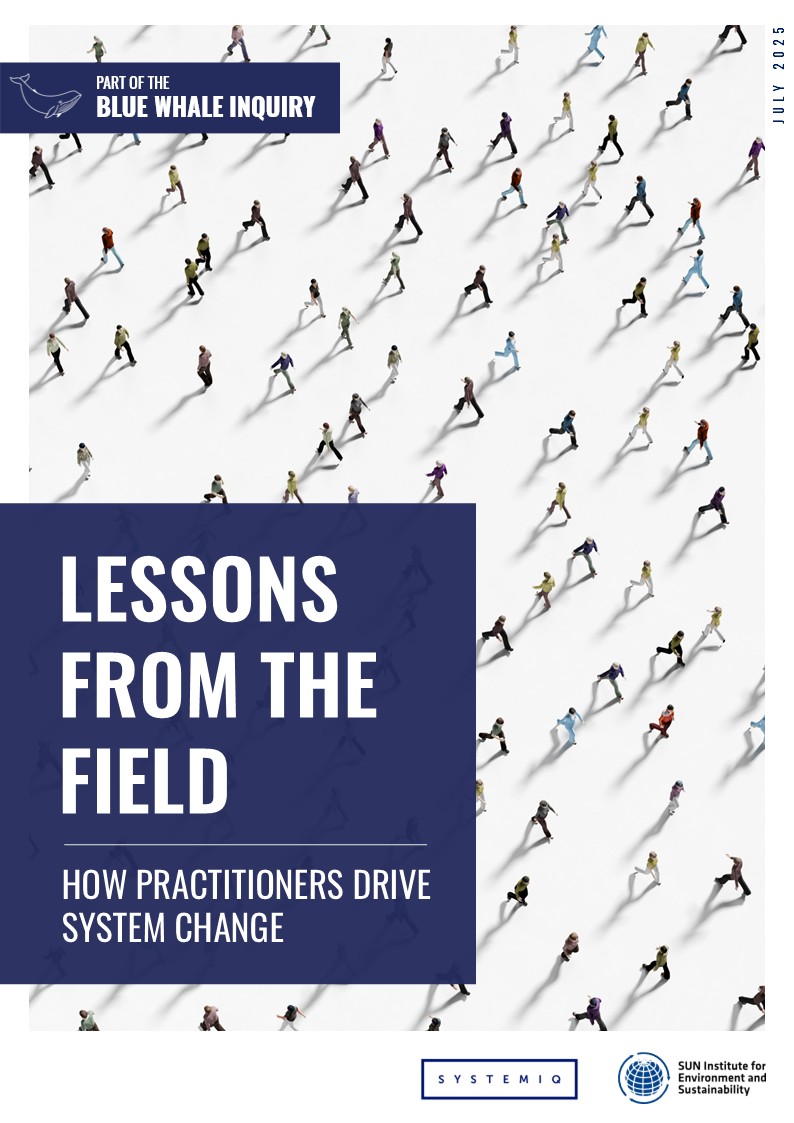What does it take to transform our most important systems – for example in health, energy and finance?
Systemiq’s Blue Whale Inquiry shares a new report that spotlights stories and lessons from those on the frontline of change.
Over the past nine months, we have been speaking with dozens of leaders and changemakers, spanning business, finance, government, civil society, and academia from across the world, and asking one big question: What does it really take to move stubborn systems?
Today we are publishing insights from over 70 in-depth conversations in our report: Lessons from the field: How practitioners drive systems change. The stories span decades and continents, and capture success as well as failure. Together they help lift the lid on how change really happens, offering vital insights for how we can urgently transition to cleaner, more equitable economies today.
Lessons from the field digs beneath the headlines to uncover the dynamics – power, timing, leadership, relationships – that made history, and those that stalled. From the negotiations which led to the landmark Paris Agreement, to inside Indonesia’s forest protection programme. From Rwanda’s agricultural revolution, which helped lift nearly one million people out of poverty, to the climate pivots of corporate giants. We sat down with campaigners behind global movements, CEOs who have led some of the world’s largest companies, and politicians who have governed their countries through periods of upheaval and unrest.
The result is a living archive of experience, hard-won lessons, and provocations for those who have worked, and continue to work, on system-size challenges. You’re not meant to agree with every voice. But you are invited to listen to what the field is telling us.
RESOURCES
The Blue Whale Interviews are ongoing as we expand the representation of different perspectives, worldviews, regions and industries. If you have suggestions for further interviewees please get in touch.
AUTHORS
Zena Creed
Engagement director
Diane Vu
Project Manager
James Miller
Intern Associate






